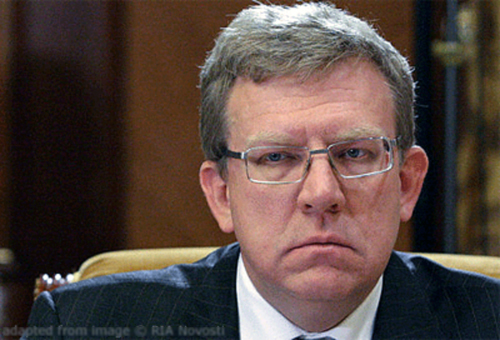Kudrin sees budget maneuver adding 0.5%-1% to Russian GDP growth

MOSCOW. April 24 (Interfax) – The so-called budget maneuver, which the Center for Strategic Research (CSR) sees as one of the main conditions for achieving sustainable economic growth and a tangible improvement in Russians’ living standards, will make it possible to achieve additional annual economic growth of 0.5% to 1%, CSR chairman and former Finance Minister Alexei Kudrin said in an article published by Kommersant on Tuesday.
“What can we achieve with the help of the budget maneuver? According to CSR estimates, already in the first three to five years, a short period for such a large economy as ours, this change in policy will make it possible to achieve additional growth of the national economy in the amount of 0.5% of GDP annually. If it continues longer, the annual addition to economic growth will already amount to 1% of GDP,” Kudrin wrote in an article titled “Transition from Band-aid Approach to Development.”
Furthermore, given additional institutional reforms in this area, the increase could be up to 1.5%, he said. “Our calculations show that, without raising taxes, it is possible to carry out a redistribution of budget funds, gradually over six years raising budget spending by 2.3 percentage points of GDP on three areas: education (0.9 ppt of GDP), healthcare (0.9 ppt of GDP) and infrastructure (0.5 ppt of GDP),” Kudrin wrote.
These spending areas, called productive, will make it possible to not only reach a consensus among economists, but also enable the economy to grow faster, he said.
“Today we spend about 11% of GDP per year on education, healthcare and infrastructure, while in Europe, for example, the average level of this spending has long been 13.5%-14%. Therefore, simply more effective spending of funds in the previous amounts would, at best, make it possible to achieve only spotty improvements, not a qualitative breakthrough,” Kudrin said.
CSR calculations show that in real terms the proposed budget maneuver means 60%-70% growth of such government spending by 2024, so a “transition from a band-aid approach to development will become possible,” he said.
“A systemic increase in government spending will stimulate businesses to actively build up their own investments in these areas, both in cooperation with the state and independently. There will be more roads, ports, housing, schools and hospitals,” Kudrin said. This will ensure both the accessibility and better quality of amenities for citizens, strengthening confidence in the future and political stability, he said.
The CSR forecasts that federal budget revenues will fall from 15.9% to 14.9% of GDP in the next three years, which means spending will also decrease, from 18.0% to 15.7% of GDP. “In 2018 prices, this means the loss of more than 2 trillion rubles. For comparison, this is almost the whole National Economy spending item in the 2017 federal budget. Then how to finance the budget maneuver?” Kudrin said.
Raising tax rates in the next six years is inadvisable, since this would slow economic growth, so Russia should “complete the tax maneuver in the oil sector, which, putting it simply, entails eliminating export duties on oil and shifting the burden to an internal tax, on mineral extraction (MET),” Kudrin said.
These measures would give the budget additional revenue equivalent to 0.3%-0.6% of GDP, and another 0.3% could be generated by eliminating a number of superfluous tax breaks and improving the quality of tax administration, he said.
The share of nonproductive spending on government administration, defense, national security and law enforcement, could be and should be reduced by 1% of GDP, Kudrin said. In the most sensitive areas – the army and security – the necessary decisions have already been made, because “in general the ten-year modernization program has essentially been completed,” he said. Furthermore, and most importantly, this spending will still increase by 10%-15% in real terms by 2024 on the back of economic growth, he added.
Essentially, the CSR is proposing a fair balance by switching to six years of higher productive spending after six years of growth in nonproductive spending, he said. “And the overall addition to economic growth will make it possible to avoid having any losers,” Kudrin said in the article.
